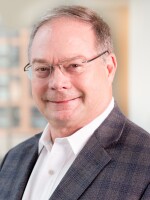MICHELE NORRIS, host:
In Miami's Cuban American community, Fidel Castro's illness has rekindled debate about how the U.S. should deal with the island nation.
And as NPR's Greg Allen reports, there's been a shift of opinion away from hard line positions and toward talking with Cuba.
GREG ALLEN reporting:
The closest thing to an official voice of Miami's Cuban community can be heard daily over 710AM, Radio Mambi.
(Soundbite of Radio Mambi)
ALLEN: On Ninoska Perez's afternoon talk show on Radio Mambi, Cuba is the topic and listeners know where she stands. Perez is the founder and spokesperson for the Cuban Liberty Council, a group of Cuban exiles who feel strongly that there can be no dialogue with Cuba until there's full democracy. And the prospect that Fidel Castro may be passing from the scene, she says, does nothing to change that.
Ms. NINOSKA PEREZ (Cuban Liberty Council): Unless in Cuba there is democratic change, there is freedom of expression, freedom of the press allowed, political prisoners are released, the commitment to hold free and democratic elections, what is the point in renewing relationships with the same dictatorship?
ALLEN: Polls show a majority of Cuban Americans support the U.S. embargo of Cuba, but there's a high level of cynicism. In part, that's because of provisions that allow U.S. farmers to sell Cuba nearly a half billion dollars worth of food and farm products each year.
And in part, it's because of their own behavior. Many Cuban Americans, especially those who've arrived in the U.S. in the last two decades, keep close ties with the island, calling often, sending back money and visiting whenever possible.
Visiting Cuba by traveling first to Mexico or another third country violates the spirit, if not the law, of the embargo. And Ninoska Perez believes it's wrong.
Ms. PEREZ: As a matter of principle, a lot of people will not go. Then you have others who say, oh, yes, I'm going back to celebrate my daughter's 15th birthday party because it's cheaper there than it is here. Well, you know what, you lied when you came here saying that you came for political reasons and because you were politically persecuted.
ALLEN: The changing demographics of south Florida's Cubans has done a lot to undermine the communities traditional hard line stance. Since the 1980s, hundreds of thousands of newcomers from Cuba have settled here and thousands more arrive each year.
Miguel Hernandez is typical. He emigrated first to Venezuela before coming to Miami in 1995. After a cup of coffee, he stopped for a moment outside of a little Havana restaurant. He's no fan of Castro, but says once Fidel is gone, he thinks it may be time for the U.S. and Cuba to talk.
Mr. MIGUEL HERNANDEZ (Cuban Immigrant): For 45 years, no conversation. Maybe some conversation bring some opportunity to open some door, you know, for the future, especially for the Cuban people, the people of Cuba, you know.
ALLEN: But along with the changing demographics, something else happened in Miami that led some Cuban Americans to re-examine their views. It was the custody and immigration battle over Elian Gonzalez.
Mr. JOE GARCIA (Cuban American National Foundation): Post-Elian, I think it was a debacle. I mean, most sensible Cuban Americans realized that the train had crashed and it had crashed on us.
ALLEN: Joe Garcia says Elian showed that Cuban Americans were out of step with the rest of the country, insisting that the 6 year old remain here while public opinion favored returning him to his father in Cuba.
Afterwards, Garcia was hired by one of the country's most hard line exile groups, the Cuban American National Foundation, to take it in a more moderate direction.
Mr. GARCIA: The Elian events were shocking to Cubans because we were the fair-haired boys of the Cold War. The problem is, the Cold War ended.
ALLEN: Elian was also a turning point for an influential Cuban American businessman, Carlos Saladriguez. Saladriguez is a banker who, along with more than a dozen other top Cuban American businessmen, founded the Cuba study group. He rejects the hard line position, which favors the popular uprising in Cuba as the best and quickest way to undo the Castro regime.
The lesson of eastern Europe, he says, is that democracy grows step by step, and he believes U.S. policy should embolden reform-minded elements within the Cuban government.
Mr. CARLOS SALADRIGUEZ: And the best way to do that is not by increasing the level of confrontation, it's not by increasing the level of threats, but by offering solutions that make change easy. The easier we make the processes of change, the more likely it's going to be that someone in Cuba is going to embrace change.
ALLEN: It's the policy Saladriguez calls conditional engagement, laying out a plan that would encourage a post-Castro government to allow freedom of travel for its citizens and the beginnings of free enterprise on the island.
Polls conducted by the Cuba study group show that a majority of Cuban Americans already support the idea and that the support is growing. The challenge now is convincing the community's hardliners and the Bush administration that after 47 years, it's time to try something new.
Greg Allen, NPR News, Miami. Transcript provided by NPR, Copyright NPR.






